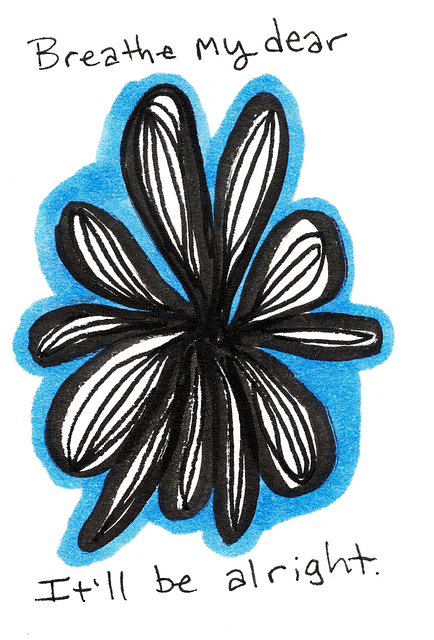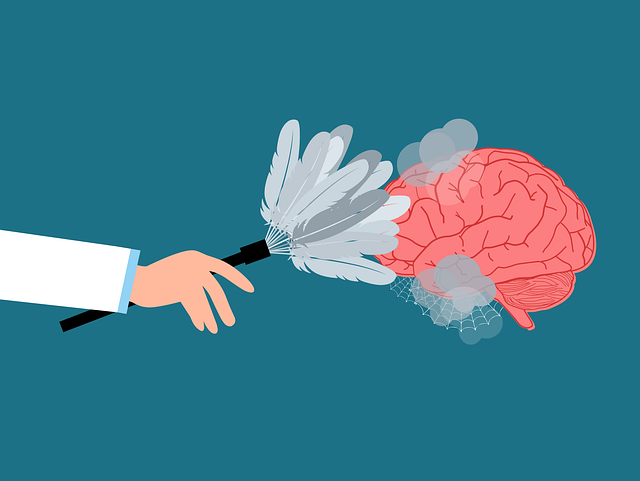The media's portrayal of older adults' mental health, especially focusing on Therapy for Elders with Post-Traumatic Stress Disorder (PTSD), is vital in shaping societal attitudes and encouraging open conversations. Accurate and empathetic media representation can reduce stigma, inspire hope, and prompt elders to seek treatment. Integrating healing journeys into storytelling, normalizes mental health struggles among seniors, while incorporating conflict resolution techniques enhances narrative accuracy. Evidence-based therapies tailored for seniors, such as cognitive behavioral therapy and mindfulness practices, offer safe spaces for processing trauma and improving mental well-being.
Mental illness representation in media significantly influences public understanding and awareness of mental health. This article delves into the impact of media stereotypes on perceptions of mental health, particularly focusing on post-traumatic stress disorder (PTSD) among elders. We explore effective strategies to foster positive change, emphasizing the critical role of therapy in supporting this vulnerable population. By examining evidence-based approaches, including specialized therapy for elders with PTSD, we aim to challenge negative portrayals and promote empathetic, accurate representations in media.
- Understanding the Impact of Media Representation on Mental Health Awareness
- Exploring Effective Strategies for Positive Change
- The Role of Therapy in Supporting Elders with Post-Traumatic Stress Disorder
Understanding the Impact of Media Representation on Mental Health Awareness

The media plays a pivotal role in shaping societal perceptions about mental health, especially when it comes to older adults. Accurate and empathetic representation can significantly impact awareness and understanding of various mental illnesses, like Post-Traumatic Stress Disorder (PTSD), among this demographic. Unfortunately, stereotypes and limited portrayals have often hindered progress in this area.
Positive media representation encourages emotional well-being promotion techniques and resilience building within older adult communities. By showcasing individuals successfully managing their mental health journeys, it can inspire hope, foster self-care practices, and reduce the stigma associated with seeking therapy. This, in turn, may prompt more open conversations about mental illness, encouraging those experiencing symptoms to seek much-needed support and treatment for conditions like PTSD.
Exploring Effective Strategies for Positive Change

Exploring effective strategies is pivotal to fostering positive change in how mental illness is represented in media. One promising approach involves integrating therapy for elders suffering from post-traumatic stress disorder (PTSD) into storytelling. By centering narratives around the healing journey of older individuals with PTSD, media can dispel stereotypes and present more nuanced, empathetic portrayals. This shift in representation can empower viewers by normalizing mental health struggles among seniors.
Additionally, incorporating conflict resolution techniques within these storylines can further enhance accuracy and resilience. Encouraging open dialogue about mental wellness through a mental wellness journaling exercise guidance can also aid in risk management planning for mental health professionals, ensuring they are equipped to address the needs of diverse audiences.
The Role of Therapy in Supporting Elders with Post-Traumatic Stress Disorder

The role of therapy in supporting elders with Post-Traumatic Stress Disorder (PTSD) cannot be overstated. As our aging population continues to face the challenges of a traumatic past, evidence-based therapeutic approaches are crucial for effective treatment and emotional healing processes. Therapy offers a safe space for elders to process their experiences, providing them with essential tools to manage symptoms and improve overall mental health.
Specialized trauma support services tailored for seniors incorporate various Emotional Well-being Promotion Techniques, addressing the unique needs of this demographic. These methods can include cognitive behavioral therapy, group counseling, and mindfulness practices, all designed to help individuals process trauma memories, reduce anxiety, and foster resilience. Through these therapeutic interventions, elders can find solace, regain a sense of control, and work towards a brighter, more fulfilling future.
Mental illness representation in media plays a pivotal role in shaping public perception and understanding. By implementing effective strategies, such as accurate and sensitive storytelling, we can foster greater mental health awareness. Specifically, the article highlights the crucial role of therapy in supporting elders suffering from post-traumatic stress disorder (PTSD). Through innovative approaches and dedicated support, we can challenge negative stereotypes, promote positive change, and ensure that those affected by mental illness receive the compassion and care they deserve.













